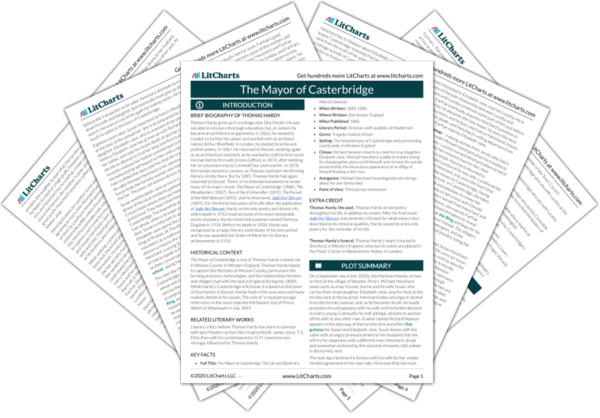The specific sum of five guineas is used in two significant transactions in the novel: first, this is the amount for which
Richard Newson purchases
Susan Henchard and
Elizabeth-Jane from
Michael Henchard at the Weydon-Priors fair. Second, Michael Henchard encloses this sum in a note to Susan when she arrives in Casterbridge eighteen years later. Henchard is aware that by sending this amount to Susan he is, in a symbolic sense, buying her back from Richard Newson. Five guineas is a trivial sum for the lives of two human beings, which should not be treated as commodities. Michael
Henchard’s willingness to both sell and buy back his wife and daughter symbolizes his economic perspective on the lives of those around him. Throughout the novel, Henchard relates to his family and his friends in terms of what they can give him. He values people who benefit his business and standing in town and devalues these same people when they do not meet his standards. He is obsessed with how
Farfrae can help his business, but then casts off the young man for challenging his authority. His care for Elizabeth-Jane depends on whether or not she is his biological daughter, and he reflects on this relationship in terms of ownership: is she or is she not
his? Money changing hands to establish family connections symbolizes Henchard’s twisted perspective on relationships, which he believes are based on ownership and possession.
